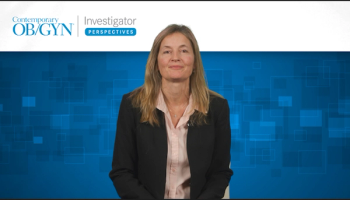
Improving Patient Communication in Postpartum Depression
Panelists discuss how to overcome patient reluctance to discuss postpartum depression through normalization, early conversations during pregnancy, comprehensive screening integration, and addressing stigma by comparing mental health treatment with other medical conditions.
Episodes in this series

Video content above is prompted by the following:
Health care providers face significant challenges when patients are reluctant to discuss postpartum depression due to stigma or fear of losing custody of their children. The key strategy involves normalization and early conversation, particularly in obstetric settings. Providers should introduce postpartum depression screening at the first obstetric visit, discussing epidemiology and prevalence as part of routine pregnancy care rather than treating it as an exceptional occurrence. This approach helps patients understand that mental health screening is comprehensive pregnancy care, not a side note for select individuals.
Effective communication emphasizes that the primary goal is keeping mothers and babies together while providing necessary support. Health care providers must consider patients’ backgrounds, including concerns about social stigma in small communities where visiting psychiatric offices might be stigmatized. Virtual mental health services have emerged as a valuable solution, offering privacy and convenience for mothers who may be on bed rest, recently delivered, or experiencing anxiety about leaving home. This approach removes barriers to accessing early intervention services.
Providers must address resistance from family members and cultural beliefs that may discourage treatment. Certain religious communities might emphasize prayer over medical intervention, requiring providers to bridge these perspectives by explaining that taking care of oneself is also spiritual work. The comparison of mental health treatment to managing common medical conditions like diabetes or cardiology helps normalize psychiatric care and reduces stigma for both patients and their support systems.
Newsletter
Get the latest clinical updates, case studies, and expert commentary in obstetric and gynecologic care. Sign up now to stay informed.






